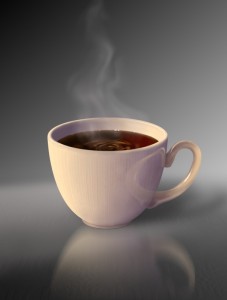 This article was actually going to feature as part two to the illusion of caffeine but then I decided to make it its own little update. I know what you’re wondering based on the title, but bear with me as it turns out that your coffee will give you a better kick up the ass if you’re expecting it to.
This article was actually going to feature as part two to the illusion of caffeine but then I decided to make it its own little update. I know what you’re wondering based on the title, but bear with me as it turns out that your coffee will give you a better kick up the ass if you’re expecting it to.
Sounds weird I realize, and maybe this is another hit for the placebo effect, but this is the research coming out of Birmingham University in the UK. Twenty-five participants were involved in four experiments. In two of the experiments they received caffeinated coffee and the other de-caff and during both tests they were told the truth about what they were getting. The other two tests were the same, only they were told they were drinking the opposite of what they were actually drinking. In other words, the caffeinated coffee drinkers were told they had de-caff and vice versa. For all sets of experiments, mood assessment found no difference, but the performance tests yielded differing and intriguing results.
The researchers found that de-caff conferred no benefits for performance, as you would expect (given that caffeine is the ergogenic compound of the beverage.) Here’s the interesting bit – caffeinated coffee improved performance when the participants knew it was caffeinated, but those drinking it that were told it was de-caff did not note the same boost in performance!
This study shows that there is a definite link between habitual coffee drinking and the mentality that the person needs their daily shot of caffeine. This attitude seems so prevalent in society that it is almost like it is a conditioned response. I have discussed the conditioned response and the reward pathway in a previous article called Eating is addictive. I’m sure you’re now thinking that there is a big difference between tasty food and a bitter-tasting beverage, but when you consider that caffeine can prolong dopamine signalling in the brain then maybe there isn’t. That being said, there is also research indicating that caffeine is psychologically addictive rather than physically addictive like amphetamines and cocaine.
Telling you to believe in your coffee to make it more effective makes me sound crazy. Other than that I have no real conclusion to this update that I haven’t already put in the previous updates during Caffeine Week. In lieu of this, I’ll end this update by letting you know that I probably have one more article on caffeine to come that will officially end the festivities. After that I’ll resume writing about random topics that I see fit.
Source: Elliman NA, Ash J, Green MW. Pre-existent expectancy effects in the relationship between caffeine and performance. Appetite. 2010 Apr 9.


The part that hit me “there is also research indicating that caffeine is psychologically addictive rather than physically addictive like amphetamines and cocaine.” Physically I can lift without a pre workout supplement and do just fine but psychologically I have to fight myself saying I won’t be able to lift as much, my workout won’t be as good. But when i take a pre workout supplement I feel unstoppable. So I can definitely see how that holds true, same with people that “can’t” work til they have their coffee that’s all mental too.